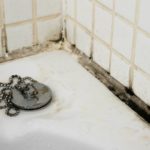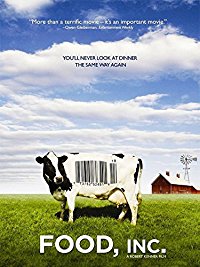Blog
16 Mar. 2018
Mold Risk Information For Homeowners in Spokane and North Idaho

9 Facts About Mold That You May Want To Know
Mold is everywhere. The Center for Disease Control estimates the existence of as many as three hundred thousand species. Molds thrive in both indoor and outdoor environments. Warmth and humidity, the very conditions preferred by humans, are ideal for their growth and proliferation. Molds surround us. Because they are so predominant in our environment, there are some basic facts about mold that everyone should know.
Long-term Exposure to Mold can be Fatal
Mold exposure can cause a multitude of health issues from mild allergies to death. Common symptoms include skin rashes, respiratory issues, and other ailments. Mold exposure has been linked to cold and flu-like symptoms as well as sinus infections and headache. More serious effects of long-term exposure include miscarriage and death in the very young, the elderly and immune compromised. If you suspect mold is growing in your home, a certified mold inspector can help you identify and eliminate the problem.
Bleach Does Not Kill Mold
Many homeowners mistakenly believe that bleach has the ability to kill mold. It does not. The mold will typically grow back within a few weeks of being sprayed. See our mold page for home inspection prices to protect your family’s health. Identification and treatment recommendations done by an independent inspector insure the best possible outcome for you and your family.
You Cannot Kill Mold by Painting Over It
Mold will grow back through paint, despite claims that certain paints are mold resistant or actually kill mold. Mold growth extends beneath surface areas where paint cannot penetrate. In a short amount of time (typically a few weeks), the paint will begin to crack or bubble, and the mold will soon re-establish its foothold. If you are having problems, have your home inspected for mold. We can recommend remediation companies or give recommendations for the DIY homeowner.
There are Over 100,000 Different Types of Mold
Yes, you read that right. One of the facts about mold you may not have known is exactly how much is out there. More than 100,000 known types of mold share the environment in which we live. Not all molds are found in our part of the world, not all types of mold are harmful, and many are beneficial. It may be impossible for an untrained person to determine the difference between beneficial and harmful molds. If you suspect molds may be causing problems, call the experts at EnviroConsulting Services.
Home-buyers Should Ask for a Mold Inspection
If you are shopping for a new home, or if you are a Realtor with a client who has questions about mold, call EnviroConsulting Services for a mold inspection. Homes reporting previous flooding or located within a designated floodplain should always be inspected. However, consider requesting a mold inspection no matter what the location or condition of the prospective purchase – even new construction can have harmful mold growth.
Insurance Policies Often Do Not Cover Mold
Check your insurance and homeowner’s policy and know the facts. Most typical insurance policies do not cover mold damage or even flood damage. Some insurance companies offer a mold rider. You may need a separate policy or be prepared to pay out of pocket should you find mold in your home.
Mold is Everywhere
Micro-spores of mold are everywhere. They surround us both indoors and out. Not all of those spores are harmful to us and others are harmful only in extremely high concentrations. Mold is in some of the foods we eat (bleu cheese). It has saved millions of lives (Penicillin). Many others exist without ever causing us harm. The problem arises when large amounts of specific spores colonize an area such as your home.
Mold in Your Home Means Moisture Intrusion
If you have found mold in your home, there is almost always an underlying cause. Moisture intrusion is occurring somewhere, even if it isn’t obvious. It could be a leak or a defect allowing rainwater to seep inside. It could have been from a flood or a simple hose drip or bad seal on your window. When you find mold, it is important to get rid of it. To keep the problem from reoccurring, it is equally important to find and remove the source of moisture.
Mold can Grow on Many Surfaces
Mold can grow on any organic or porous material under the proper conditions. While it cannot grow on non-porous surfaces such as glass, metals or concrete, it can absolutely grow on dust layers that may accumulate on those surfaces. Any home is full of surfaces that are conducive to mold growth.
Facts about Mold – Conclusion
These are 9 facts about mold that you may not have known. These basic facts can help you determine if mold may be an issue in your home. There is a lot that you can do to prevent serious growth and complications associated with mold. You don’t have to be an expert to understand this – but you do need an expert to successfully identify specific problems and assist in their remediation.
Written by: Farren Hauck, Susan Melka
quick links
Mold Illness and what happens to the body
How to recover from mold sickness once mold is remediated from your home
Internal links

26 Feb. 2018
Food Inc. Documentary on Food Production in America
Food Inc. Explained
Filmmaker Robert Kenner’s movie Food Inc. lifts the shroud from our nation’s food industry, exposing the highly mechanized food production systems that have been hidden from the American consumer with full consent of the U.S. Department of Agriculture and the Food and Drug Administration. Our nation’s food supply is now controlled by a handful of mega corporations that put profit ahead of consumer and worker safety, the health of our environment, and consumers, and the livelihood of the American farmer. Genetic modification has delivered insecticide resistant soybeans and herbicide resistant corn. Chickens with bigger breasts and perfect pork chops have been conjured by modern agribusiness along with tomatoes that keep forever on the shelf. These supposed advances, however, come at great cost we are experiencing an epidemic of obesity, particularly among young children, and skyrocketing levels of diabetes among adults. We also have new more virulent strains of e-coli, the harmful bacteria that infects 73,000 Americans annually.
While films of this kind are essential in exposing the offenses of the food industry, this documentary has a message of its own. It clearly advocates for locally grown and organic foods. The film expresses the idea that US agribusiness operates on a model similar to that of McDonald’s Restaurant principals of mass production. This industrialization of our agricultural production yields food that is unhealthy inhumane, and harmful to the only planet we call home. While higher standards of health and safety may help to reform our food industry, it is doubtful that self-regulation will encourage meaningful reform among corporate producers. Therefore, the ultimate responsibility to improve the overall production and quality of America’s food supply falls on the government. Reform is drastically needed in regulations and implementation, agricultural subsidies, and consumer education. Food Inc. very aptly illustrates the power of food industry lobbies in Washington DC and the difficulties we face in effecting positive policy change in the production of food in America.
Blog Text Provided by: Farren Hauck, Susan Melka
Link to watch Food Inc.
Food, Inc. (2008) | Watch Free
watchdocumentaries.com/food-inc/
Sep 7, 2008 – Uploaded by WatchDocumentaries.com
Watch Food, Inc. (2008) online. Documentary providing an insight into the American food industry and how …
Other Links
Who Monitors Our Food? | Schuster Institute for Investigative …
Movie Review – ‘Food, Inc.’: For Health Or Profit, But Not Necessarily …
Quick links to Website
